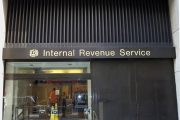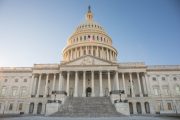Minimum Wage. The minimum-wage increase bill (H.R. 2) would increase the federal minimum wage by $2.10 over two years to $7.25 an hour. Senator Ted Kennedy (D-Mass.) had repeatedly attempted to pass a minimum-wage increase in recent years, but the Republican-led Congress had always rejected his minimum-wage amendments. The minimum-wage increase represents one of the first major pushes of the newly elected Democratic Congress and was high up on the 100-hour legislative agenda pushed by House leaders at the beginning of the congressional year.
In 1996, the federal minimum wage was increased by 90 cents to the current $5.15 an hour. Though many people believe that raising the federal minimum wage is a solution to national poverty, allowing the market to dictate wages allows entry-level workers to get the experience and job training they need to get higher paying jobs.
The House passed H.R. 2 on January 10, 2007, by a vote of 315-116 (Roll Call 18). We have assigned pluses to the nays because it is unconstitutional for the government to prohibit citizens from working for less than a government-set wage.


